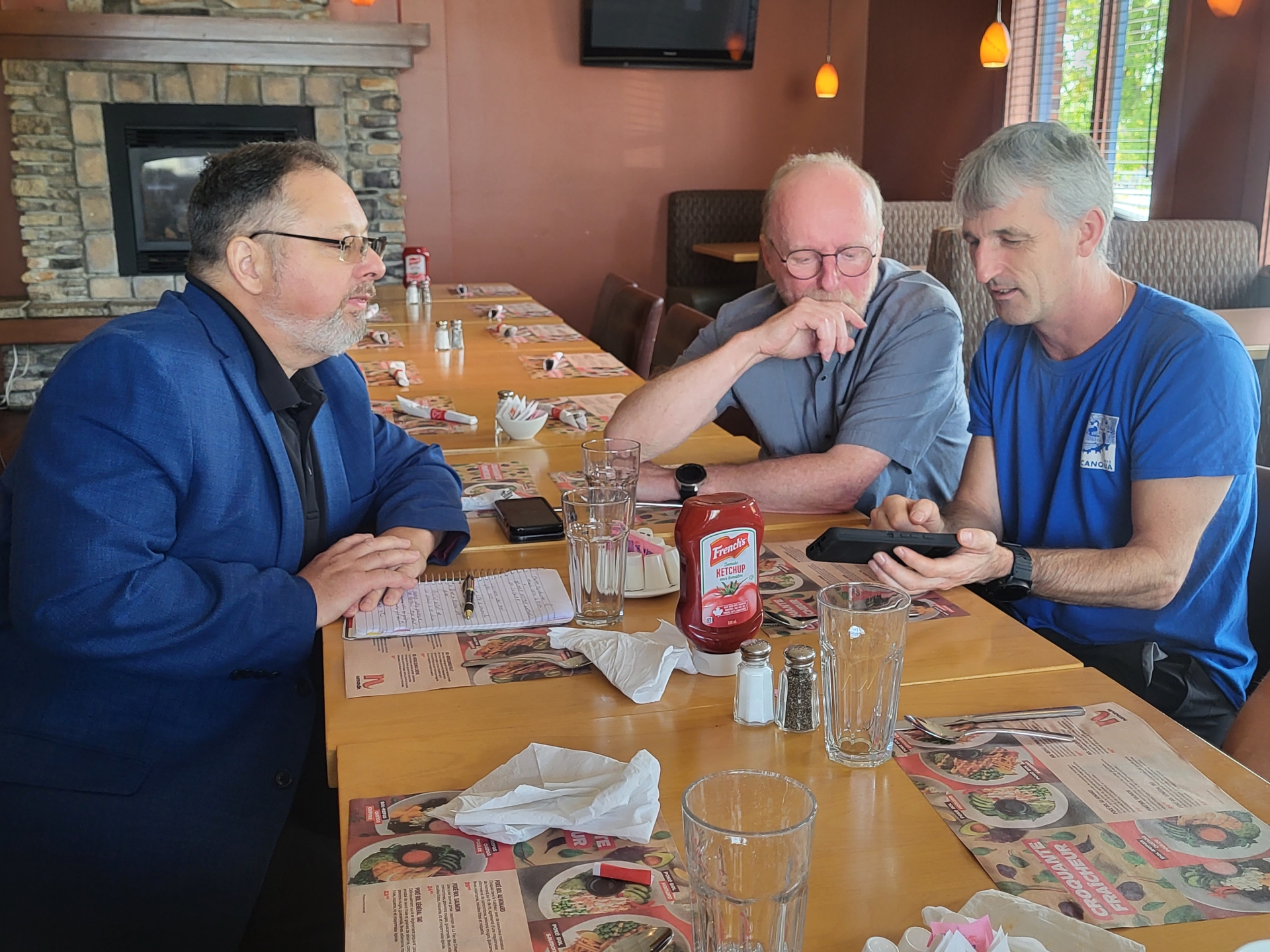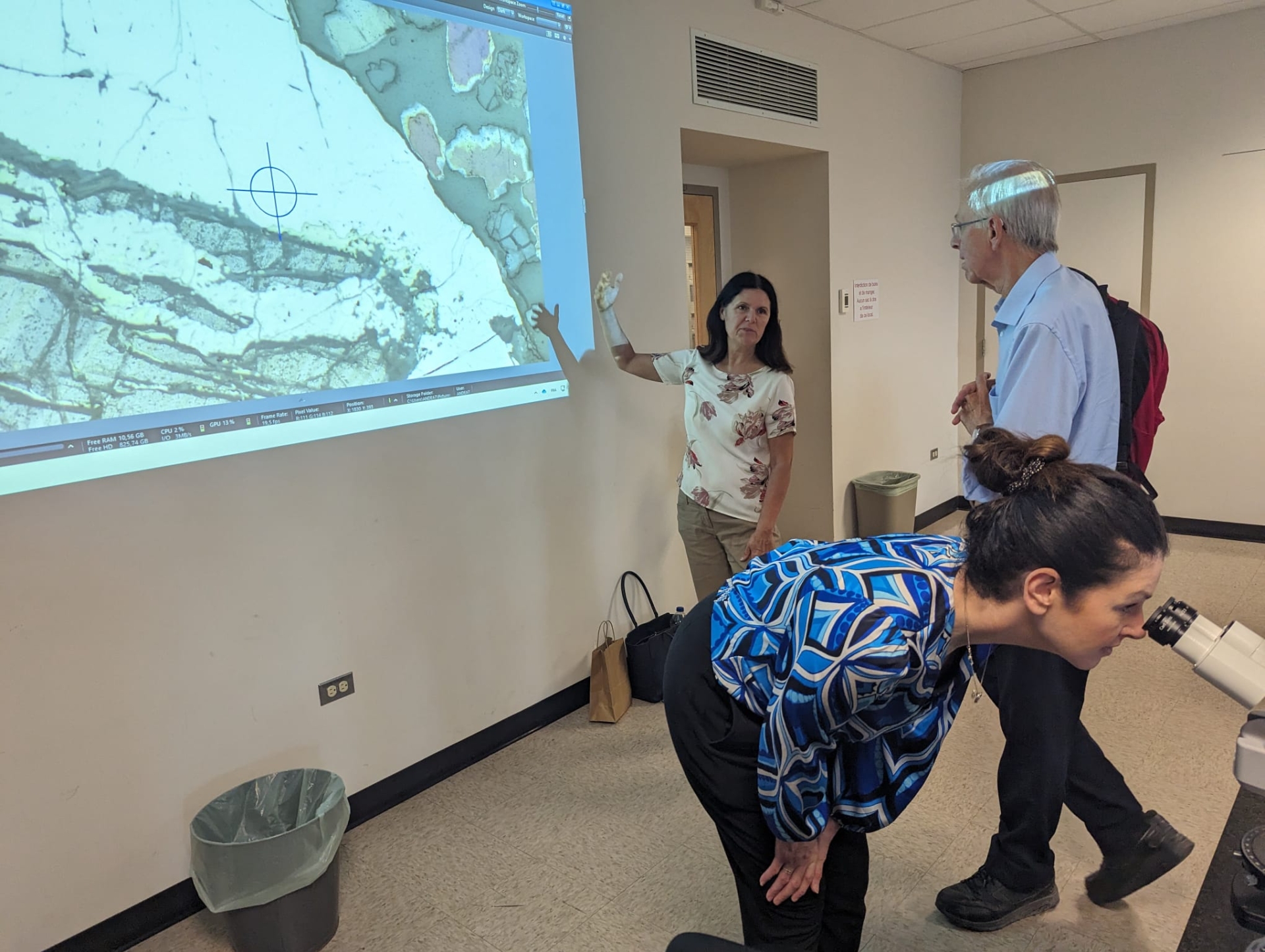
Dr Eileen Doherty and Professor Paul Dunlop visited Trois-Rivieres in Quebec where around 8,000 homes have been damaged by pyrrhotite
Defective concrete block campaigners from Donegal who have visited Canada on an academic research trip say there is a stark difference in the speed that the Canadian Government reacted to homes affected by defective concrete compared to the reaction of the Irish Government.
Around 8,000 homes around Trois-Rivieres, a town between Montreal and Quebec City, were damaged after they were built with low-quality concrete that contained the mineral pyrrhotite, which expands when it comes into contact with water and air.
Experts in the crisis from Quebec visited Donegal as part of the international conference on defective blocks that was held in Letterkenny last November.
Dr Eileen Doherty and Professor Paul Dunlop from Ulster University visited Quebec earlier this month to meet academics who have studied the problem and also victims impacted by it.
The academics hailed the research trip, which was funded by Knowledge Acquisition and Foresight Activities (KAFA) through the Connected NI project at Ulster University, a huge success and say they are very optimistic for further research collaborations arising from it.
Dr Doherty said their meeting with the group who represent victims of the pyrrhotite issue in the Trois-Rivières area of Canada, Le Coalition D’aide aux Victimes de la Pyrrhotite, was “incredibly insightful”.
“The parallels between our experience and theirs was quite hard to comprehend. There are so many similarities both in terms of how both governments reacted initially and how things have ‘played out’ at a local level. One area that was quite different however, was the speed at which the Canadian Government reacted in getting homes fixed once the problem was identified. In this area, there is a stark contrast to how the Irish Government handled this issue and one we plan to examine in greater detail.”

Professor Paul Dunlop meeting with members of Le Coalition D’aide aux Victimes de la Pyrrhotite
She said they have invited members of the coalition to visit Ireland to share their experience in the near future.
“We are hopeful that we can learn from what they did and encourage those with responsibility for dealing with this crisis here in Ireland to take similar expedient action”.
Professor Dunlop was one of an international team that published research earlier this year that found that defective concrete blocks in Donegal are failing because of pyrrhotite and not mica.
“We can’t thank Professor Benoit Fournier, Professor Josèe Duchesne and the wider research team from the Department of Geology and Geological Engineering at Laval University for hosting us and for organising meetings and site visits to ensure we got the most out of our knowledge exchange visit,” he said.
“We spent the week discussing and planning the ongoing research we are doing collaboratively as part of our €500,000 Geological Survey of Ireland-funded project, where we are investigating the fundamental causes of concrete block failure in Donegal. The team at Laval are at the forefront of testing aggregates for problematic minerals and we had a chance to see first hand the cutting-edge experiments that are being done on Donegal aggregates in Laval’s world class laboratories and the discussing preliminary results from the tests.”

Professor Josèe Duchesne, Professor Michel Pigeon and Dr Eileen Doherty at Laval University in Quebec
“Additionally, we went on a field visit to Trois-Rivières, a city between Quebec City and Montreal where 8,000 homes have been destroyed by pyrrhotite that was in the aggregates used to make their concrete foundations. These aggregates came from the Askimo quarry near the city and full access to the quarry was facilitated by the owner and their expert geologist who was happy to show us around the various quarry sections and provide us with as many samples as we wanted to take with us. We learnt about the long history of research collaboration between the quarry owner and the Laval research team to try and better understand the problem that occurred in the Trois-Rivières, and this research is now helping to underpin the Canadian standards for concrete production to try and ensure another pyrrhotite disaster does not occur elsewhere in Canada. This is very different to what is happening here in Ireland where access is hard to get or is not allowed by the operator”
Dr Doherty said the trip gave the opportunity to meet with a number of stakeholders who have significant experience and knowledge of how the crisis unfolded in Canada.
“Some of these lessons are of significant value to our ongoing research here in Ireland. Of note was the meeting and detailed discussions we had with Professor Michel Pigeon, former chancellor of Laval University and former elected member of the Canadian parliament.
“Michel has significant knowledge and experience of this issue. He is one of the foremost scientists in the area of ‘freeze/thaw’ in concrete and has written and published extensively on this issue. He has also recently completed his second doctorate in sociology so has a keen interest on how this crisis is impacting upon both Canadian and Irish society. A number of areas of research were identified for potential research collaboration and discussions will continue over the next few weeks and months.
Subscribe or register today to discover more from DonegalLive.ie
Buy the e-paper of the Donegal Democrat, Donegal People's Press, Donegal Post and Inish Times here for instant access to Donegal's premier news titles.
Keep up with the latest news from Donegal with our daily newsletter featuring the most important stories of the day delivered to your inbox every evening at 5pm.